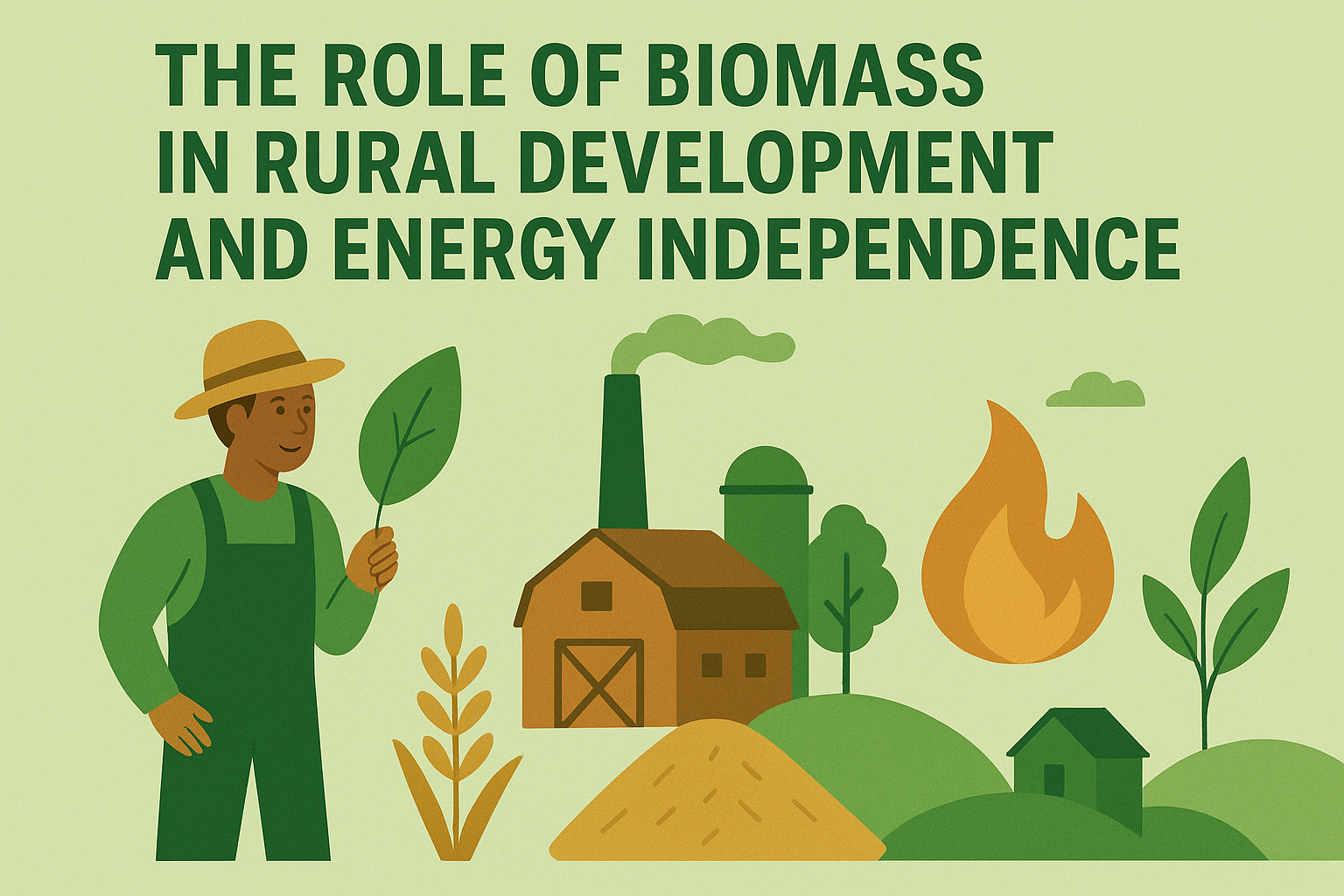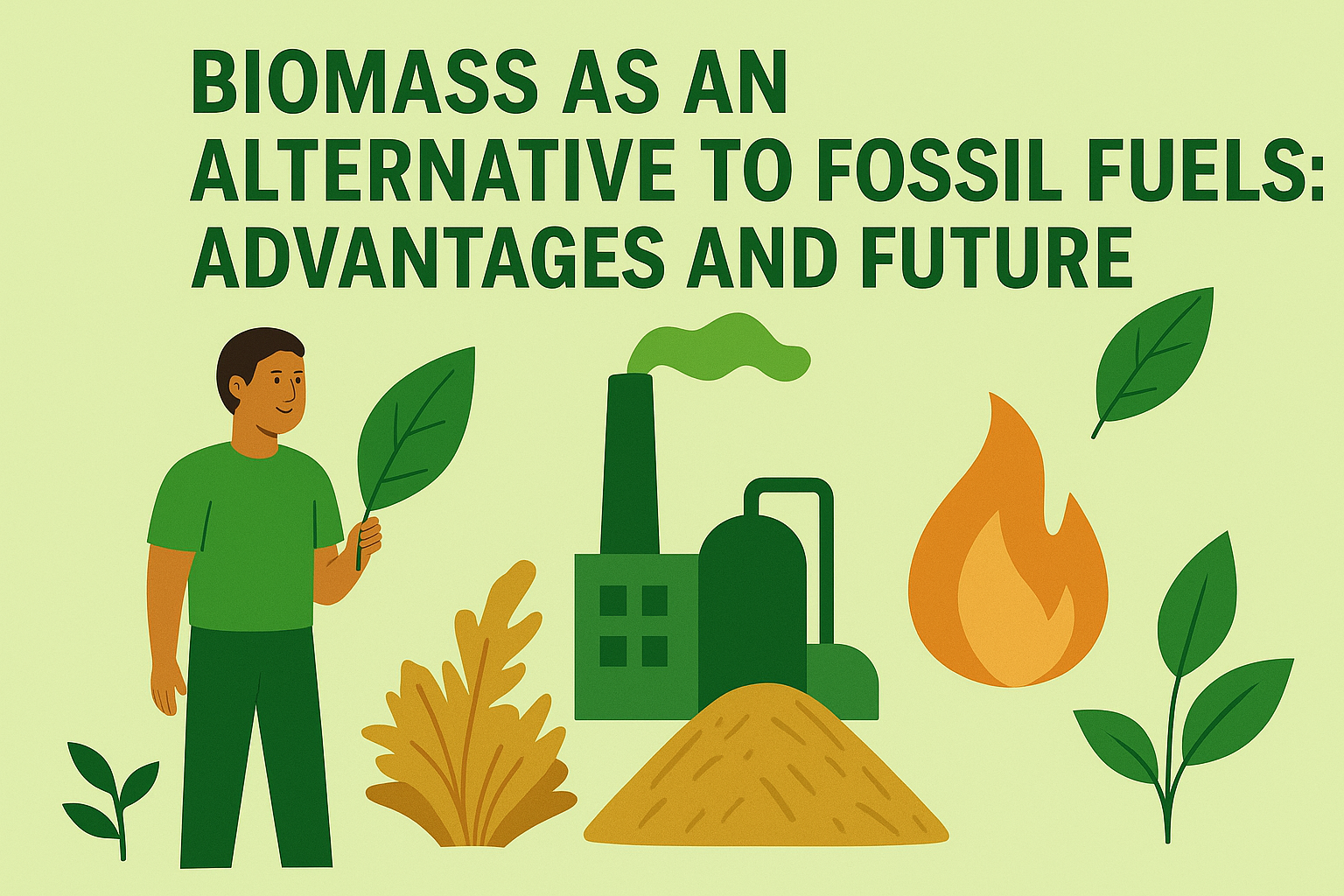Explore the role of biomass in rural development, energy independence, the advantages of biomass, innovations, and how biomass energy companies are transforming communities.
The search for sustainable and renewable energy sources has become one of the most pressing global challenges. Fossil fuels have powered industrialisation, as well as modern living standards, but there is negative environmental impact as well. Among renewable sources, biomass energy has emerged as the solution that can best serve the rural communities looking for self-sufficiency and economic growth.
Biomass refers to the organic material, including agriculture residues, animal waste, forest by-products and even municipal solid waste that gets converted into usable energy. By harnessing the local resources, rural areas not only meet their energy demands but also stimulate environmental activity, reduce dependency on imported fossil fuels, as well as create jobs.
This article will explore the advantages of biomass, its role in rural development, as well as technological innovations, driving the sector, such as Briquetting Machines and Pelleting Machines. Also, it will break down how biomass energy companies contribute to achieving energy Independence.
Understanding Biomass Energy
Biomass energy is derived from renewable organic materials that are burned directly for heat or converted into biofuels and electricity. The energy that is captured from materials is essentially solar energy that is stored through photosynthesis. Thus, it becomes part of the carbon cycle. When managed sustainably, biomass can provide carbon-neutral energy since carbon dioxide released during combustion is balanced by carbon dioxide that is absorbed by the plants during their growth. Biomass processing happens in several forms.
- Direct combustion – burning wood pellets or crop residues produces the heat and power.
- Gasification and Pyrolysis – it converts the biomass into the syngas or bio-oil.
- Aerobic digestion – It produces biogas from organic waste like manure or food scraps.
- Advanced biofuels – they convert agricultural and forestry feed stocks into ethanol, biodiesel, and other fuels.
Advantages of biomass
The advantages of biomass make it particularly valuable for rural development:
- Resources such as crop residues, livestock manure, or wood waste are continuously replenished, ensuring long-term availability.
- The cultivation, processing, collection and transportation of biomass create jobs in farming, forestry and manufacturing. Rural areas get new business opportunities from biomass energy companies to small-scale cooperatives.
- Rural communities often rely on imported fossil fuels, which can be costly and unstable in price. Locally sourced biomass reduces dependence on external supplies and enhances energy security.
- Biomass reduces greenhouse gas emissions when compared to coal, natural gas and oil, and it also provides a sustainable method of waste management by repurposing agricultural and forestry residues.
- Biomass can be used for heating, cooking, electricity generation, as well as transportation fuels. The adaptability makes it suitable for the diverse rural energy.
Biomass in rural development
For rural communities, energy access is directly linked to development. In this regard, biomass offers several ways for the improvement of livelihoods.
- Traditional biomass, including cow dung, crop stalks, and firewood, has long been used in rural households, often inefficiently and with harmful emissions. Modern biomass technologies, such as Briquetting Machines and Pelleting Machines, convert residues into compact and energy-dense fuels. Such briquets and pellets burn more cleanly, ensuring reduced indoor air pollution and improved health.
- Collection, transportation and processing of biomass materials generate jobs at every stage. Farmers can also sell their crop residues, while the small entrepreneurs can operate biomass processing units, supporting rural entrepreneurship and reducing urban migration.
- Monetising crop residues, forestry by-products, and ensuring that the biomass energy change lets Farmers gain an additional source of income. It also encourages better land management, reduces the risk of open burning and deforestation.
- Biomass energy supports rural industries such as food processing, small manufacturing units and brick kilns. Affordable energy supplies allow these industries to flourish without relying on costly fossil fuels.
- Biomass-based energy projects, especially community-owned ones, empower villages, ensuring control over the energy supply. It also reduces vulnerability to energy shortages and builds resilience against economic shocks.
Role of technology in the form of Briquetting Machines and Pelleting machines
The transformation of raw biomass into efficient fuels is largely driven by technology. Two of the most impactful innovations in this regard are Briquetting Machines and Pelleting machines. Briquetting Machines involve compressing loose biomass, like sawdust, husk, or stalks, into dense blocks, referred to as briquettes. They ensure easier storage and transportation with a higher calorific value than raw residues. Also, it reduces smoke and ash during combustion. Briquettes find use in household stoves, industrial boilers, and rural microgrids.
Pelleting machines compress the biomass into small cylindrical pellets that are uniform in size and shape, making them suitable for automated feeding systems. Also, they have high energy density and low moisture, ensuring combustion efficiency. They are easier to export, making them attractive for the international biomass energy trade as well. They find applications in the heating systems, power plants, and also the large-scale industrial applications.
Biomass and energy independence
Energy independence is vital for the developing nations, as well as rural areas, where access to fossil fuels is limited or expensive. In this regard, the biomass contributes to energy independence in numerous ways. Small-scale biomass plants can power the rural villages independently from the national grids, ensuring reduced reliance on the centralised fossil fuel power stations.
Also, the fossil fuel markets are volatile, with the global price changes impacting the local economies. Biomass that is sourced locally will ensure stable and predictable costs. Producing biofuels locally will ensure that the countries can cut down on importing petroleum products, which can also save foreign exchange and boost economic stability. Countries that are aiming for the renewable energy targets can rely on biomass in the form of a versatile contributor to electricity and transport fuel.
Biomass energy companies and their role
The growth of biomass energy has been supported by the specialised biomass energy companies that innovate, invest as well and build supply chains. The contribution includes the technology development, infrastructure investments, Capacity building, market development, as well as sustainability standards. These companies work in the form of bridges between rural communities and larger energy markets, ensuring that the biomass stays both sustainable and profitable.
Conclusion
Biomass energy holds transformative potential for rural development, as well as reducing energy dependence through the utilisation of agricultural residues and forestry for producing valuable energy sources. It ensures addressing rural energy needs, creating jobs and also promoting sustainable practices. The advantages of biomass in the form of renewability, affordability, and environmental benefits ensure that it serves as a stronger alternative to fossil fuels. Innovations like Briquetting Machines and Pelleting Machines have unlocked new possibilities for the rural communities, while biomass energy companies have been continuing to drive progress with the help of technological advancements and investment.



